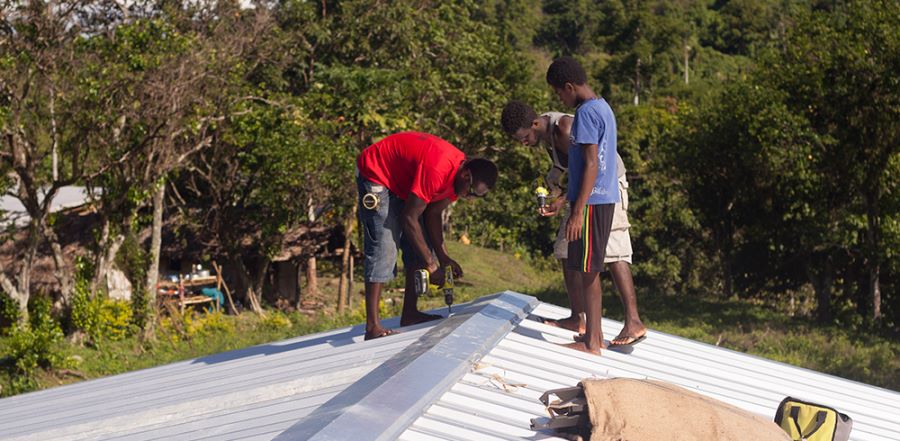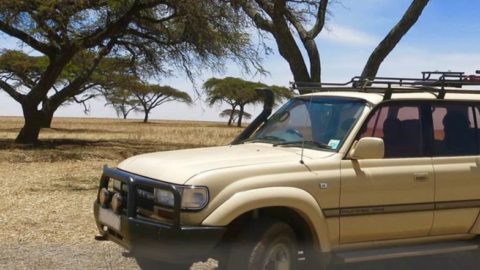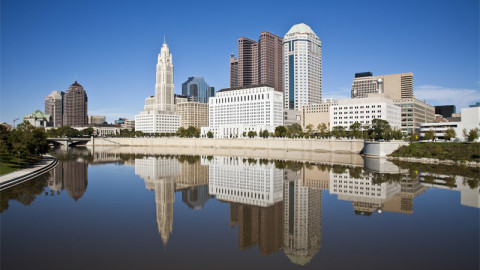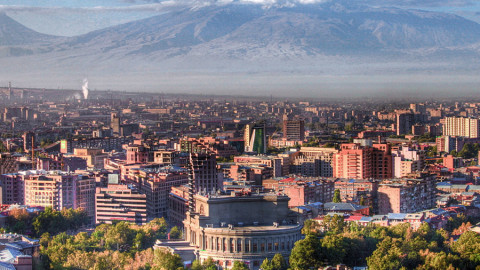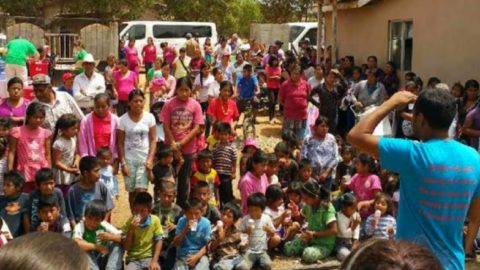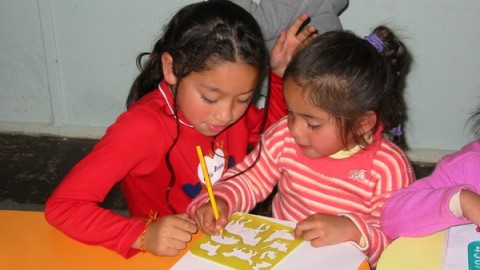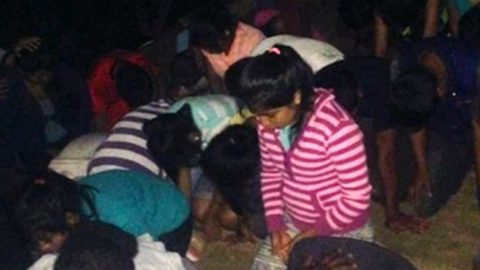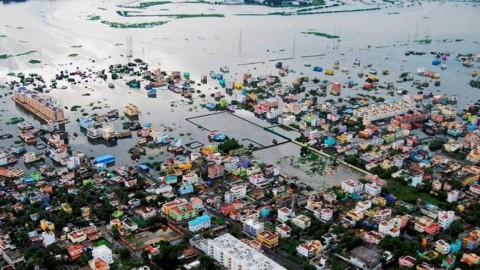The Asia Pacific Region of Assemblies of God World Missions envisions an “effective community of Christ followers among every people group, every remote village, and every major city within Asia Pacific.”
Pemau certainly qualifies as a remote village. To reach it, we cross an island by truck and a bay by boat, followed by a 4-mile trek inland from the ocean. We top the final hill, and a picturesque valley spreads out before us. Framed by high craggy mountains and overshadowed by a towering waterfall, Pemau’s valley is filled with lush coconut plantations and the village’s quaint thatch huts.
Together, three Southern Missouri District missionary families are working to see an effective church in Pemau — Nathan and Jennifer Thomas with their daughters January and Juliet; Sam and Lisa Paris with their children Liam, Kalie, Ari, and Terry; Renee and I with our two youngest children Drew and Eli.
After greetings have been exchanged, we move down to the site of the new church building. The building sits on a shelf of level ground just above a jumble of falls in the river. The village spreads out before it along the riverbank.
As we rest, the village men rally around Willie, their new pastor, to discuss the remaining steps to complete the church building. Willie and his wife, Lamot, have just graduated from Sanma Bible Training Center. My heart yearns to see this same scene played out in the hundreds of unreached villages across Vanuatu: a new pastor, a new church, hope for the islands.
Southern Missouri District Superintendent Don Miller is leading Project Reach, a church planting initiative. Project Reach seeks to obey Christ’s command in Acts 1:8 to reach both home and abroad at the same time. To do that, the Southern Missouri District has committed half of every dollar raised for Project Reach to planting churches overseas. The goal is 165 new churches locally and internationally.
Stan Welch, district missions secretary, tells me, “We believe the planting of new churches is the biblical pattern and the most effective means for reaching all people groups. We are undeniably pursuing the largest world church planting initiative in the history of our district.”
With three Southern Missouri District missionaries serving together as part of the larger team of missionaries in Vanuatu, placing some of those churches here was a natural fit. “We are very excited to partner with the Vanuatu missionaries as they commit themselves to planting 25 new churches,” Welch says.
Hope for the Islands is a six-year plan to plant those churches among 16 language groups of Vanuatu. Developed in partnership with the Vanuatu Assemblies of God, the plan’s phases bring quantitative goals and benchmarks that advance the goals of the national church.
Hope for the Islands involves training future pastors, developing ministry training centers, purchasing key properties, constructing church buildings, and reaching communities via primary schools and water wells. The new church at Pemau is the first of many.
Immediately after the Pemau church dedication that Sunday, the chief surprises us. The village has set aside a plot of ground for a kindergarten. The village preschoolers and the missionary kids gather around missionary Nathan Thomas as he lays a stone at the future site of Hope Christian School, Pemau.
As I return home, scenes from the day play out like a movie in my mind: young men praying at the altar after the sermon, Pastor Willie leading the people of the village in prayer, the cluster of children around Nathan as he dedicates the site of Hope Christian School. I recall the words of Isaiah: “In his teaching the islands will put their hope” (Isaiah 42:4, NIV).
Today at Pemau, celebrating the construction of a new church is merely a first taste, an appetizer for the future God has in store. In His teaching, there truly is hope for these islands.
(Source: AG World News)

